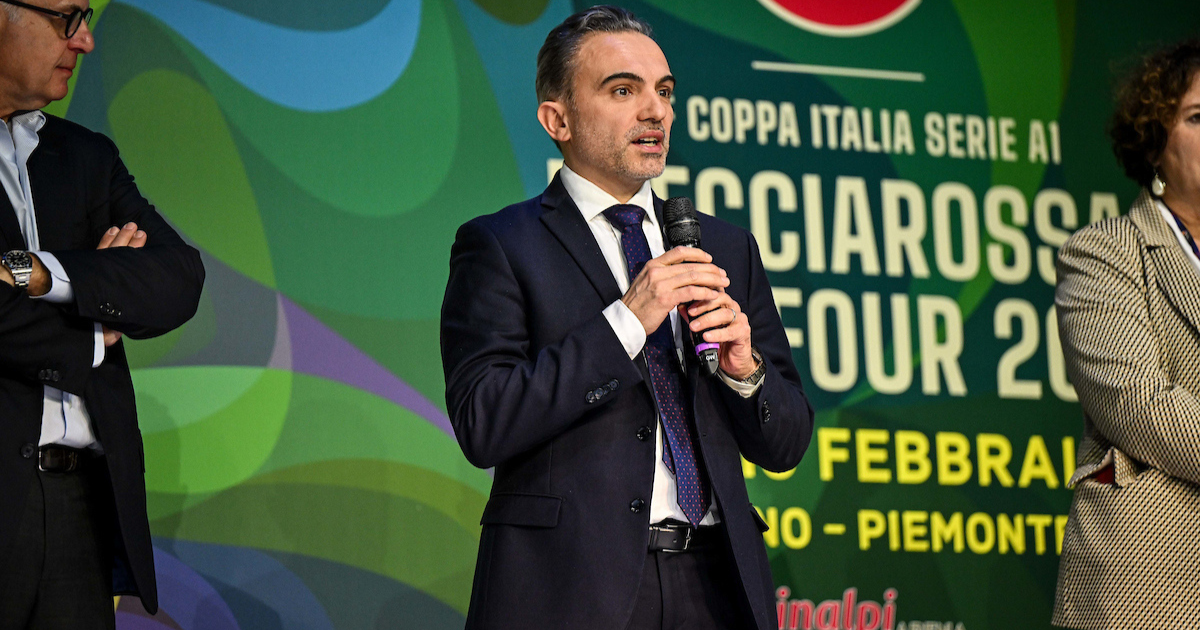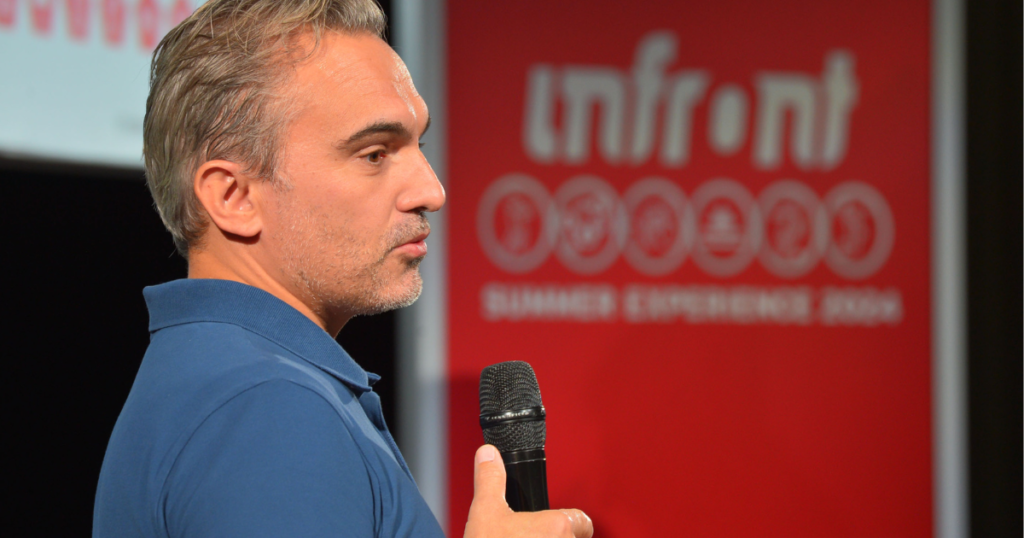
Interview with Alessandro Giacomini, Managing Director of Infront Italy
Infront Italy, Platinum Partner of SFS 24, is a recognized leader in the sports business industry with a clear vision and a strong commitment to sustainability. Within sports event management, Infront aims to promote necessary change, focusing on reducing environmental impact and creating a positive social impact. Through initiatives involving high-profile sports events, such as the Rome Marathon, as well as large-scale environmental and social projects, the company is committed to building a more sustainable and responsible sports ecosystem. With just a week until the seventh edition of SFS on November 19-20 at Rome’s Olympic Stadium, we interviewed Alessandro Giacomini, Managing Director of Infront Italy.
Infront is one of the sports business companies that has made a strong commitment to sustainable management of sports events. How do you position yourselves in this area, and what are the main focus areas?
Sustainability is no longer just a trend; it is a necessity. The sports industry has the opportunity to drive change thanks to its global influence, promoting concrete actions that can safeguard the future of the industry itself, and Infront wants to be a driver of this change, acknowledging its responsibility to this planet and its people. Sports play a key role in paving the way for more sustainable development, and for this reason, our Group integrates new processes into every sporting event with the aim of shaping a sustainable sports ecosystem. In participation events, the Group has implemented voluntary measures to reduce environmental impact and has collaborated with non-profit organizations to support social causes and create a positive impact on the community.
The Rome Marathon is a significant practical example of Infront’s commitment to sustainability. What have been the main results in terms of reducing social, economic, and environmental impact?
In the case of the Rome Marathon, we partnered with Circularity to minimize the event’s carbon footprint, achieving ISO 20121 certification for sustainable management. In line with the United Nations’ 2030 Agenda for Sustainable Development Goals, we are committed to continuously improving these standards year after year. In 2023, for example, we recovered 43.57 tons of uneaten food and beverages, which were donated to the Banco Alimentare Roma ODV, preventing the emission of about 11.72 tons of CO₂. Additionally, from 2021 to 2023, we launched a reforestation project in Guatemala, planting over 6,000 trees capable of absorbing more than 6,000 tons of CO₂ over time. These initiatives reflect Infront’s long-term commitment to reducing the environmental impact of its events. We have adopted eco-friendly practices at every stage, such as producing merchandise from recycled materials and using hybrid or electric vehicles for 39% of our fleet. We have also reduced single- use plastic by using compostable cups in refreshment areas. Initiatives like the mascot Tartaruga Vittoria, created with WWF for the Rome Marathon, play an important role in raising participants’ awareness of biodiversity conservation and wildlife protection. Our commitment generates a positive impact in terms of raising awareness among participants and for the environment and local communities.

What are the main challenges and opportunities in promoting sustainable practices in complex sports events?
Organizing sustainable sports events requires careful management and continuous collaboration with partners and stakeholders. But the first step is to frame the characteristics of the event: is it indoors or outdoors? In a city or a remote mountain valley? Is it a single event mainly for the local community, or a tournament with many international guests? To implement sustainable practices, one must first analyze the organization of the event and identify the main factors of positive and negative environmental, social, and economic impact. Credible sustainable practices are based on a SMART objective (specific, measurable, accepted, realistic, and timely) based on the analysis of the current status. The main challenge is to engage stakeholders in reducing environmental impacts, even accepting short-term financial compromises. For us at Infront, this aspect is crucial because we believe that investing in sustainable events today will bring economic, social, and environmental benefits in the long term.
Looking to the future, what are Infront’s ESG goals, and how do you plan to further develop these practices?
Infront has set 21 ESG goals across five key areas: developing a sustainable sports ecosystem, corporate integrity, employee well-being, inclusive growth, and combating climate change. The goal is to reduce negative impacts and support clients in their transition to more sustainable practices. Progress on the goals is reported annually in our sustainability report, which can be found here: https://www.infront.sport/it/sostenibilita. Transparency is fundamental to credible ESG commitment. In Italy, we are currently working on sustainability reporting that fully complies with the EU’s Corporate Sustainability Reporting Directive (CSRD). The reporting year will be 2025, with the report to be published in 2026. Based on European reporting standards, we will further develop our corporate ESG management.



